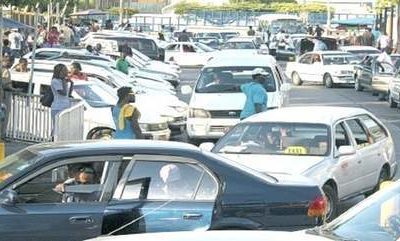AMEND CRIMINAL LAWS TO ALLOW COMPENSATION FOR VICTIMS
The conversations about crime have largely been dominated by the horrendous acts of the criminals and possible crime fighting strategies. I understand why this is the case, as I too for many years have shared the same anxiety as my fellow Jamaicans about the safety of my own family and friends. While these are important discussions to have, as they play an important role in finding solutions, there is something else that is occupying my thoughts. My mind is preoccupied with thoughts of the victims of violent crimes and the inevitable challenges they have to endure.
System contributes to victims’ trauma
After falling prey to criminal acts, victims and their families face a tremendously long and arduous road which is often riddled with devastating physical injury, emotional trauma, financial distress, loss of property and other damages. I believe, however, that navigating this difficult road can be made a little easier for victims by making simple amendments to existing criminal laws, that will empower the Judiciary to award nominal, compensatory and punitive damages to the victims.
The current practice is for cases to be first tried for years in the criminal courts, which currently have no power to award restitution to victims. If victims so choose, they may seek compensation by dragging the perpetrator to the civil court, where the case starts again from the very beginning and often gets tied up for years.
The current structure is extremely inefficient and essentially forces the victim to endure the trauma three times before compensation is contemplated; once during the actual crime; a second time during the criminal trial; and a third time during the civil trial. We have the opportunity to bring closure to the victims much sooner, which is what they need most, by making a simple change that will condense the lengthy process.
Go after the pockets of criminals
Two of the most powerful laws on Jamaica’s books are ‘the Child Care and Protection Act’ and ‘the Offences Against the Person Act’, which were last amended in 2009 and 2010 respectively. These laws address the majority of violent crimes, with the former focusing on offences involving children. Both of these powerful laws are virtually silent on the matter of compensation for the victims.
The suggestion therefore is to amend ‘the Child Care and Protection Act’ and the ‘Offences Against the Person Act’ to include provisions for the award of compensation to the victims. This will enable the criminal courts to effectively go after the pockets and the assets of convicted criminals at the very moment of sentencing.
In a country where many persons “nuh fraid fi go prison,” a quick and severe blow to the wallets of the perpetrators will act as an additional deterrent to committing crimes. For example, a man may reconsider harming a woman or child if he feels it will result in the criminal courts quickly seizing his assets to cover the value of the award to the victim(s) of his crime.
Determining the amount of compensation
It is my humble opinion that when the criminal courts determine how much the perpetrator should pay, consideration should not only be given to imprisonment and fines but also to the cost of restoring the victims as far as possible to their status prior to the offence. It is the perpetrator’s actions that brought about the damages, hence they should be held responsible for the resulting costs such as medical bills, counseling, loss of wages and loss of assets. Therefore, our criminal laws should be structured in such an efficient way that the perpetrator is made to pay the victim quickly, and not after decades of frustrating proceedings in multiple courts.
Conveniently, a methodology for determining the quantum of the payment, which incorporates a means test that takes into account persons’ financial circumstances, is already available to the civil courts. There is no need to reinvent the wheel as we can simply reorganize the tools that are available by having the criminal courts adopt this same practice. This however would not prevent the victim from seeking further compensation in the civil court.
What if the convict is a person of straw, with no possessions of worth? Provisions can also be made in the amendments to the above-mentioned laws to treat with instances where the convicted person’s finances are insufficient, by making restitution a condition of probation or parole. This would be similar to the practice in the United States where the Federal Probation Act affords judges the discretion to include victim restitution as a condition of probation, while their Victim and Witness Protection Act allows victim restitution as a condition of parole.
Immediate Reduction in Court Case Backlog
The Government of Jamaica recently announced that it is working on a statistical system that will accurately assess the extent of case backlog in courts across the island. It is a much needed and welcomed initiative. However, for the purpose of this discussion I point you to an article in the Jamaica Observer on Monday January 9th, 2017 entitled “Court Backlog Worsens.” The article sheds light on the insurmountable task of disposing of the 620 cases that were scheduled to be heard in the new Hilary Term of the Home Circuit Court. The large volume of cases and the limited resources result in cases moving slower than pond water through the system.
The additional years in the civil courts not only frustrates all parties involved and costs taxpayers a hefty sum, but also exposes victims and witnesses to undue risk, which often results in cases falling apart. The suggested amendments are low hanging fruits that would result in an immediate reduction in the court case backlog, save taxpayers money, and most importantly bring justice to victims in a much faster time than currently exists. If justice delayed is justice denied, then justice advanced is justice affirmed.
Although the concept of awarding restitution upon sentencing in the criminal courts is simple, it will require the support of legislators, the Judiciary and the general public for it to become a reality in Jamaica. Times have changed and our laws should change to treat with the circumstances of the day.
Stephen R. P. Edwards is the President of Generation 2000 (G2K), the young professional affiliate of the Jamaica Labour Party. He is a Civil Engineer and former University Lecturer. He can be contacted at [email protected]





